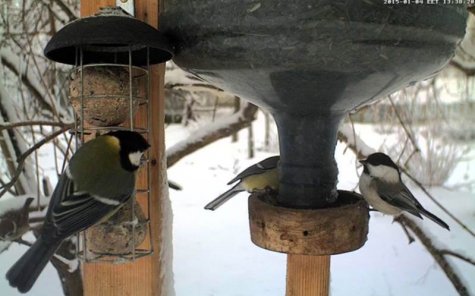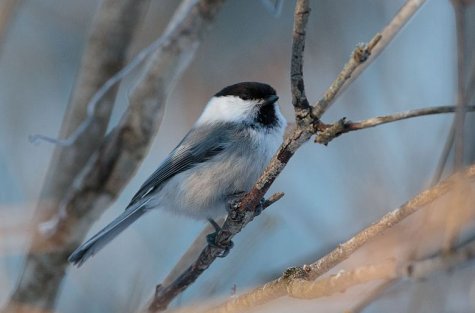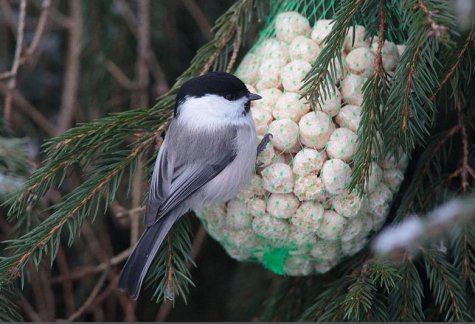Winter bird feeder camera – Willow tit
Web camera image captured by Lussi, LK forum
Photos Arne Ader
Translation Liis
Willow tit Põhjatihane Parus montanus
"Di-dää-dää, di-dää-dää" sounds from the webcam and in a moment it is here – the willow tit.
In flocks of different tit species in wintery conifer or mixed forests one or a few willow tits can often be in the ”gang”. Tits are mostly busy in the tree crowns but willow tits we also see in action on tree trunks. The little bird has business there because it collects supplies for poorer days, hiding found seeds in bark crevices.
The winter number of willow tits varies widely – from three to six hundred thousand individuals; it is strongly influenced by the flocks of migrants arriving from north or northeast. Our young birds of this summer can however be seen by the Poles. Willow tits are not particularly keen visitors to the bird feeder but it cannot be said either that they don’t go there at all to snatch seeds.
Which differences should one pay attention to when comparing willow and marsh tits?
The black top of the head of the willow tit is duller black, that of the marsh tit is glossier.
The cheeks of the willow tit are more broadly white, reaching to the nape, and the ”chin beard” looks wider.
On the wings of the willow tit we notice brighter lengthwise bands that are absent on those of the marsh tits.
Eye colour, the beak and the colour of the legs are similar for both species and as said before also the size, weight and the fact that both sexes have similar plumages.
Willow tit observations: LINK
Willow tit
Willow tit











